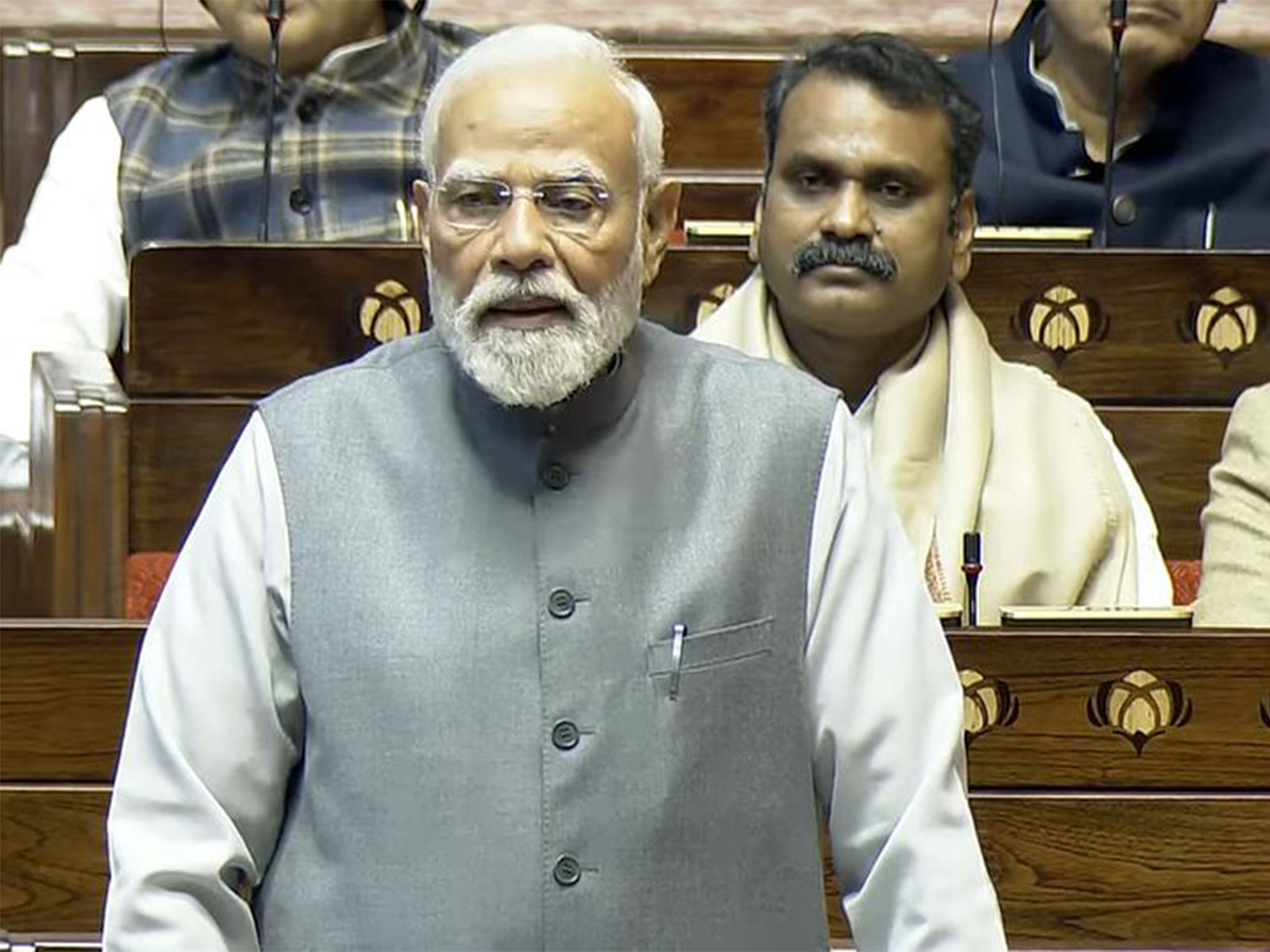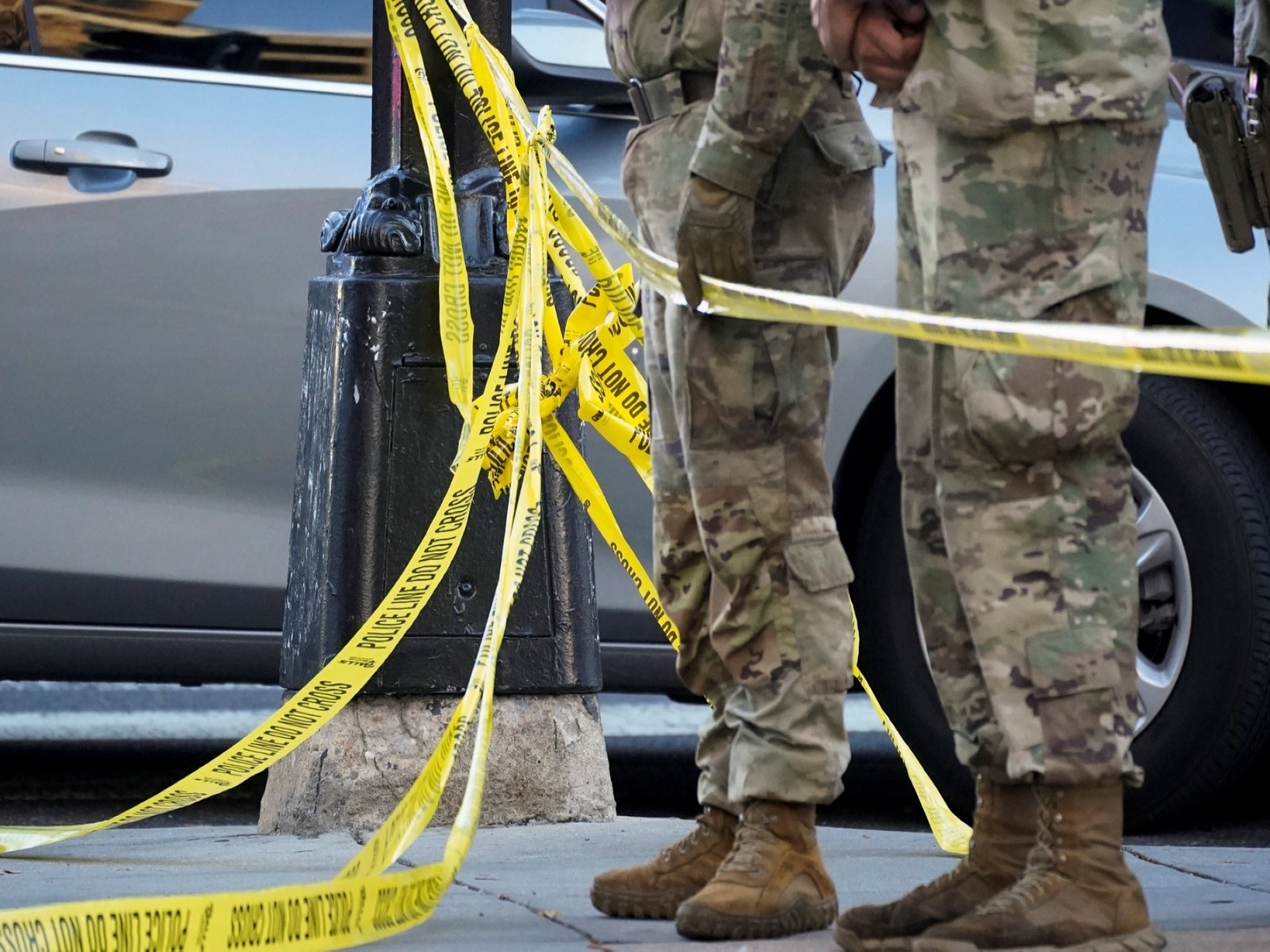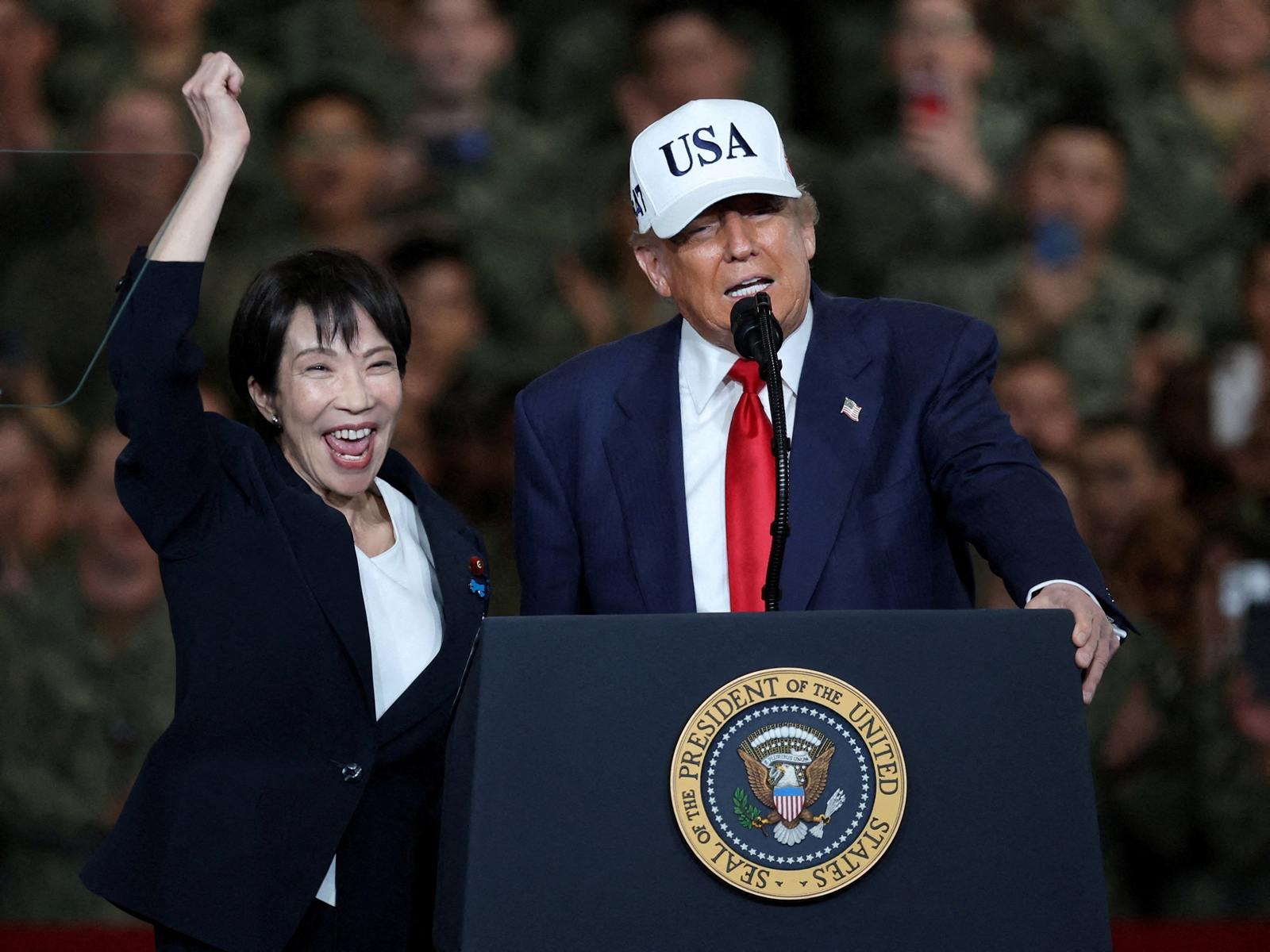In Junaid's village, anger builds against spate of lynchings and Modi's silence
_67538_730x419-m.jpg)
Monday saw Eid-ul-Fitr being celebrated across the country with great fanfare. In contrast stood Khandawali village in Ballabgarh, Haryana, shrouded in gloom and silence, mourning the death of 15-year-old Junaid, who was killed by unknown assailants last Thursday, 22 June.
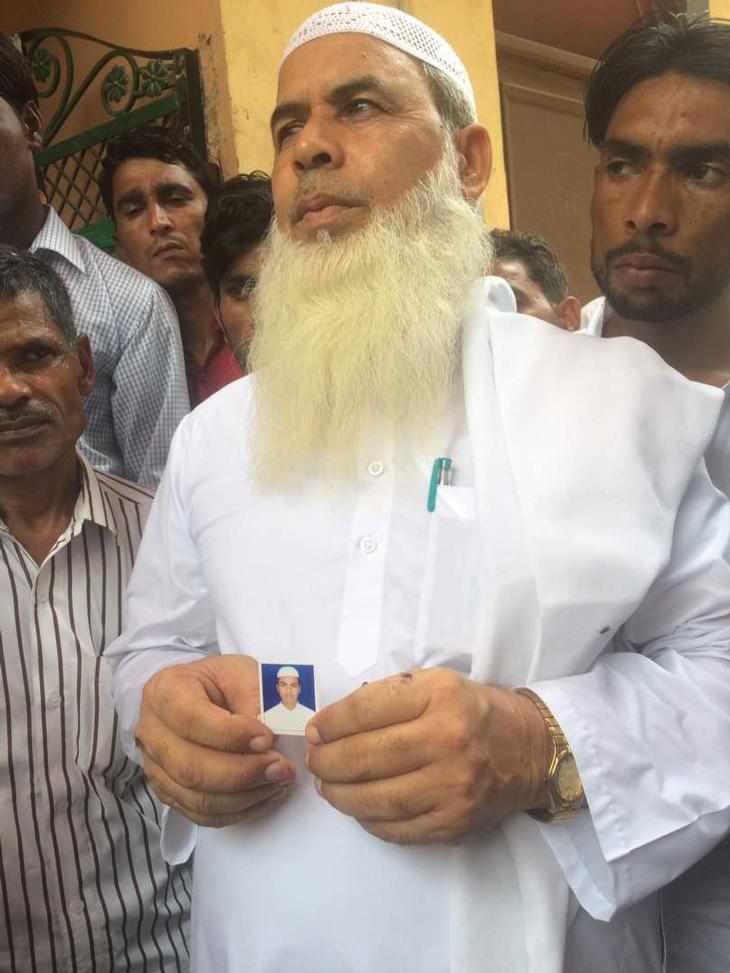
Nearly 85% of residents in the village are Muslims, for whom this should have been the happiest day of the year – a day of feasting after fasting through the holy month of Ramzan. But instead, they shunned all celebrations and only offered namaz, sporting black arm bands in protest against the killing.
On Thursday, Junaid, along with two of his brothers, was travelling from Delhi to Ballabgarh in the Delhi-Mathura passenger train, having completed their Eid shopping in the capital. That's when a mob attacked and subsequently stabbed him multiple times. His older brother is still battling for his life at the AIIMS Trauma Centre in Delhi.
A mother's cry
No one in the family seems to have come to terms with the death yet.
Junaid's father has been unwell ever since he heard the news, and has been avoiding the media that has descended on this small village.
For mother Saira, who considered Junaid the brightest of her seven sons, this Eid is darker than she could've ever imagined.
Wailing for her dead son, Saira recounted that she was offering namaz when word came through that the boys had been in a fight, and had been stabbed. “I just went into shock. Then, they brought my son's body. They then said have a look at your son for the last time; they hid from me that he was dead. Earlier, if any such thing came up for discussion, he would say 'mother, don't worry, I will make you proud and become a famous Imam one day'. Now Allah has taken him,” she said.
Her wails reverberated in the small room, where other women too broke into tears. The women present in the room felt that Saira would never be able to recover from the loss. “From now on, every Eid will remind her of Junaid. She has been saying that this festival will never bring happiness to her,” said one of the women present in the room.
Junaid had recently returned home to Khandawali from Mewat, after finishing his study of the Quran at the Madarsa-Faiz-e-Subhaniya. He took money from his parents to buy new clothes and sweets for Eid.
According to Junaid's neighbours, he was a bright boy who developed deep interest in religious scriptures at a young age, which led to the parents sending him to pursue his passion for religious studies.
Brother recounts the horror
In the adjoining room, Junaid's brother, Mohammad Shakir, who was also present during the deadly scuffle, is nursing his injuries. He, too, was stabbed twice in the back, and was avoiding the media.
Sitting in a poorly lit room surrounded by the women of the house, he narrated the incident and dismissed the theory of the boys not offering the seats, which led to the scuffle.
“Junaid offered his seat to an elderly man, and while he was standing, he was being pushed by others with the intent to start a fight. Suddenly, he was pushed so hard that he fell, and then these men started calling us katwa, beef-eater, cow-killer, Pakistani, anti-national, and hurled other profanities at us,” he said.
When Junaid asked them to stop, they attacked him and Hashim. Eventually, Hashim called Shakir from Tughlakabad station and asked him to rush to Ballabgarh station. When Shakir and his friends entered the train at Ballabgarh, they were attacked too. By the time the train reached the next station, Asaoti, Junaid lay in a pool of blood. “We sensed that he was dead,” said Shakir, as he tried to control his tears.
“The truth is, we are Muslims who wear caps and sport beards. Is it wrong to do so? Can't we wear caps or have beards? Can we be branded as anti-national or Pakistani just because of how we look? How do we prove that we are not anti-nationals? What do we have to do to survive in this country?” questioned Shakir.
Why is Modi silent?
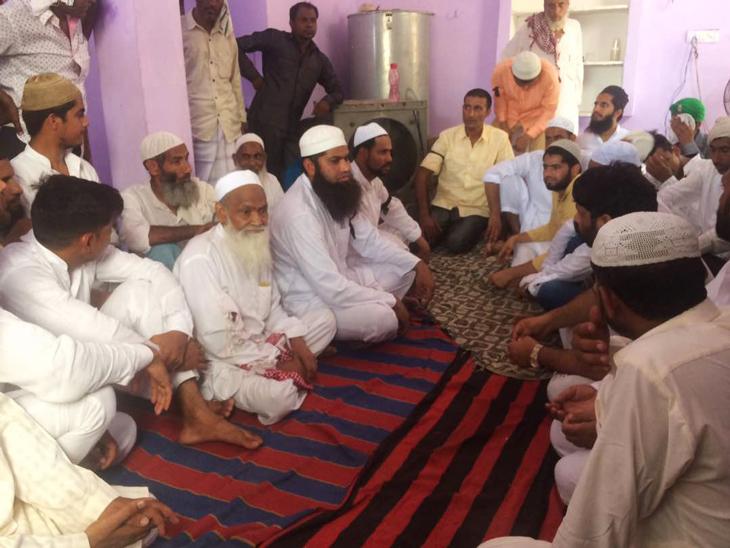
At the village entrance, several men wearing black arm bands gathered and were discussing how Muslims were living in fear under the present Narendra Modi regime.
Everyone here had the same question: “What do we have to do to prove that we are not anti-national? When will the people of this country realise that Muslims chose to stay back in India not because of chance but because of choice,” said Mohammed Yunus.
He went on to add that Muslims don't need to give a certificate to anyone to prove their patriotism. “We have sacrificed before and will sacrifice in future if need be. If there is a war tomorrow with Pakistan or China, send us to the border,” Yunus added.
His words drew applause from all those present.
Mohammad Javed, too, chimed in, saying this phase would not last, since this was Gandhi's India, not Godse's. “Diversity is the beauty of this country and no organisation, political party or government can change it. Modiji might say that there is no stain on his government because the glasses through which he is seeing are all black. How would he see any stains?” Javed said.
Yunus further questioned why the Prime Minister, in his Mann ki Baat radio programme, spoke about the Emergency of 1975, and not about the present day, when children were being lynched in the name of cow protection and beef.
“What kind of Prime Minister is he? When Dalits were attacked in Una, he did say a few words, but that was also a show off. What have we done? Why is there not a single word of compassion from him on these killings? His silence suggests that he too is part of this. If not, then he should embrace us and warn all those who are trying to destroy the secular fabric of this nation,” he said.
An elderly man asked everyone to stop, and pointed out that Muslims had always been suspected of being 'anti-nationals' who did not love this country. He pointed out how every time India and Pakistan played cricket, Muslims were looked at with suspicion.
He claimed: “We want India to win when they play Pakistan, but we have to shout to prove our support. So many Muslims play and have played for the Indian team, how can we be any different? The present government should realise that those who force people to shout Vande Mataram are the ones who will destroy this nation.”
Justice for Junaid
Residents of Khandawali, including Junaid's family, are planning to come to Jantar Mantar in New Delhi on 28 June to protest against the increasing attacks on Muslims across the country. Junaid's mother, too, might come, but for the time being, she wants justice.
“They should be punished for killing my Junaid. No one, especially a 15-year-old, deserves to die like this. I hope they will find his killers and bring justice to my son,” she said, before being taken away to the room where she spent the last four days mourning and remembering her beloved son.
First published: 26 June 2017, 21:24 IST





![BJP's Kapil Mishra recreates Shankar Mahadevan’s ‘Breathless’ song to highlight Delhi pollution [WATCH] BJP's Kapil Mishra recreates Shankar Mahadevan’s ‘Breathless’ song to highlight Delhi pollution [WATCH]](https://images.catchnews.com/upload/2022/11/03/kapil-mishra_240884_300x172.png)

![Anupam Kher shares pictures of his toned body on 67th birthday [MUST SEE] Anupam Kher shares pictures of his toned body on 67th birthday [MUST SEE]](https://images.catchnews.com/upload/2022/03/07/Anupam_kher_231145_300x172.jpg)




